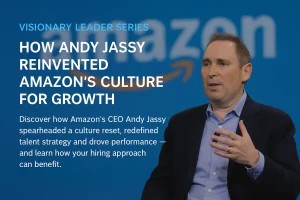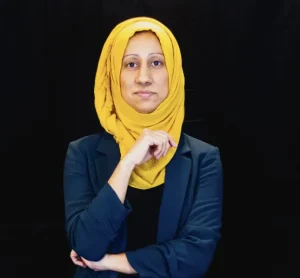“Giving a strong tell me something interesting interview answer can set the tone for the entire conversation. This question allows hiring managers to see personality, communication style, and executive presence. The capacity to strategically reveal something interesting about yourself during C-level interviews represents a sophisticated form of executive communication that transcends traditional biographical disclosure, transforming personal narrative into competitive differentiation and organizational value proposition.”
The contemporary executive landscape demands that senior leaders possess not only exceptional technical competencies and strategic acumen but also the sophisticated communication skills necessary to articulate their unique value proposition through compelling personal narratives. When an interviewer prompts you to tell me something interesting about yourself, this seemingly casual interview question represents a critical moment for strategic positioning that can fundamentally influence your trajectory toward C-level executive roles.
This interview question serves as more than a conversational icebreaker; it functions as a sophisticated assessment tool that enables hiring organizations to evaluate your capacity for strategic thinking, authentic leadership, and cultural alignment. The ability to transform this inquiry into a demonstration of executive presence while revealing an interesting fact that enhances your professional narrative distinguishes exceptional candidates from their peers in today’s competitive executive marketplace.
For senior executives navigating complex organizational dynamics and stakeholder relationships, the strategic deployment of personal narrative becomes an essential competency that extends far beyond job interview contexts to encompass board presentations, investor relations, and strategic partnership development. Understanding how to effectively leverage the opportunity to tell me something about your background requires sophisticated preparation and strategic thinking that aligns personal authenticity with organizational objectives and competitive positioning.
The Strategic Psychology Behind Executive Interview Dynamics
The request to share something interesting during executive interviews operates within a complex psychological framework where hiring organizations seek to understand not merely what candidates have accomplished, but how they conceptualize their own journey and integrate diverse experiences into coherent leadership narratives. This interview question functions as a window into executive thinking processes, revealing how candidates synthesize personal experiences with professional objectives while maintaining the sophisticated communication standards expected at senior leadership levels.
Contemporary C-level hiring processes increasingly emphasize cultural fit and leadership authenticity, making the ability to answer the question about interesting personal attributes a critical differentiator in executive selection. The interviewer seeks to understand how candidates navigate the delicate balance between personal disclosure and professional positioning, evaluating their capacity to build trust and rapport while maintaining executive gravitas and strategic focus.
The psychological underpinnings of this inquiry extend beyond simple curiosity to encompass sophisticated assessment of executive presence, communication effectiveness, and strategic thinking capabilities. When prompted to tell me something interesting, exceptional candidates demonstrate their ability to transform personal narratives into strategic communication tools that reinforce their value proposition while revealing the depth of character and experience that distinguishes transformational leaders.
Executive-level organizations recognize that senior leaders must possess the communication sophistication to engage diverse stakeholder groups, from board members and investors to employees and external partners. The ability to craft compelling personal narratives that resonate across these constituencies while maintaining authenticity and strategic alignment represents a fundamental competency for contemporary C-level leadership success.
Cultural Intelligence and Executive Positioning
The strategic deployment of personal information during executive interviews requires sophisticated cultural intelligence that enables candidates to calibrate their narratives for maximum impact while respecting organizational values and stakeholder expectations. This calibration process demands understanding of not only the immediate interview context but also the broader organizational culture and strategic objectives that will shape executive leadership requirements.
Successful executives understand that their response to queries about interesting fact elements of their background must demonstrate alignment with organizational values while revealing unique perspectives and experiences that enhance their leadership capacity. This strategic approach to personal narrative requires careful consideration of how individual experiences translate into organizational value creation and competitive advantage.
Strategic Frameworks for Executive Narrative Development
The development of compelling responses to requests for something interesting about your background requires systematic approach that integrates personal authenticity with strategic communication objectives. Contemporary executives must possess the sophistication to craft narratives that simultaneously reveal character, demonstrate competence, and reinforce their unique value proposition within the competitive landscape of senior leadership talent.
Effective executive positioning through personal narrative requires understanding of how individual experiences contribute to leadership effectiveness and organizational value creation. The ability to tell a story that resonates with senior stakeholders while demonstrating strategic thinking and cultural alignment distinguishes exceptional candidates from those who approach this opportunity with tactical rather than strategic perspective.
The most effective example answers to queries about interesting personal attributes demonstrate sophisticated integration of personal experience with professional objectives, revealing how individual journeys have contributed to executive development and leadership capacity. This integration requires careful consideration of how personal narratives reinforce professional brand while providing authentic insights into character and values.
“The transformation of personal experience into strategic narrative represents one of the most sophisticated competencies required for contemporary executive leadership, enabling senior leaders to build trust and rapport while demonstrating the depth of character necessary for organizational transformation.”
Narrative Architecture for Executive Communication
The construction of compelling responses to interview question requests for interesting personal information requires sophisticated understanding of narrative architecture that enables executives to guide listeners through carefully crafted journeys that reveal character while reinforcing professional competence. This architectural approach demands consideration of opening elements that capture attention, developmental components that build understanding, and concluding elements that reinforce strategic messages.
Contemporary executives must understand how to select personal experiences that demonstrate leadership qualities, strategic thinking, and cultural alignment while maintaining appropriate boundaries between personal disclosure and professional positioning. The ability to share something interesting that enhances rather than detracts from executive credibility requires sophisticated judgment and strategic communication skills.
The most effective executive narratives demonstrate how personal experiences have contributed to professional development while revealing character traits and values that align with organizational objectives. This demonstration requires careful selection of experiences that showcase resilience, innovation, strategic thinking, and leadership capacity through personal rather than purely professional contexts.
Sophisticated Approaches to Personal Revelation in Executive Contexts
The strategic deployment of personal narratives during executive interviews requires sophisticated approaches that transform individual experiences into compelling demonstrations of leadership character and organizational value creation potential. When prompted to share a fun fact or reveal interesting personal attributes, exceptional candidates understand how to leverage these opportunities to reinforce their strategic positioning while providing authentic insights into their leadership journey.
The most effective approaches to this interview question transcend simple biographical disclosure to encompass strategic storytelling that demonstrates how personal experiences have shaped leadership philosophy, enhanced decision-making capabilities, and contributed to professional effectiveness. This sophisticated approach requires understanding of how individual narratives can reinforce executive brand while providing meaningful insights into character and values that distinguish transformational leaders.
Contemporary executives must possess the communication sophistication to craft responses that engage listeners while maintaining professional gravitas and strategic focus. The ability to tell me something about your background that enhances rather than diminishes executive presence requires careful consideration of tone, content, and strategic messaging that aligns personal authenticity with professional objectives.
Strategic Content Selection Methodologies
The selection of appropriate content for sharing something interesting about your background requires systematic evaluation of personal experiences against criteria that include strategic relevance, cultural alignment, and leadership demonstration potential. This evaluation process demands sophisticated judgment that balances authenticity with strategic communication objectives while maintaining appropriate boundaries between personal and professional disclosure.
- Transformational Experience Framework:Select experiences that demonstrate how challenges or opportunities contributed to leadership development, revealing resilience, adaptability, and strategic thinking through personal rather than purely professional contexts.
- Value Alignment Strategy:Choose narratives that subtly reinforce alignment with organizational values and culture while showcasing unique perspectives and experiences that enhance leadership capacity and stakeholder engagement effectiveness.
- Competency Demonstration Approach:Identify personal experiences that showcase leadership qualities such as innovation, collaboration, strategic thinking, and cultural intelligence through contexts that reveal character and authentic leadership style.
The most sophisticated executives understand how to select personal narratives that function as strategic communication tools, enabling them to demonstrate leadership qualities while building trust and rapport with diverse stakeholder groups. This selection process requires understanding of how individual experiences translate into organizational value creation and competitive advantage within contemporary business environments.
Advanced Examples of Executive Personal Positioning
The development of compelling example answers to requests for something interesting about your background requires sophisticated understanding of how personal narratives can reinforce executive positioning while providing authentic insights into leadership character and strategic thinking capabilities. These examples of fun facts or interesting personal attributes must demonstrate alignment with executive competencies while revealing unique perspectives and experiences that distinguish exceptional leaders.
Contemporary executives understand that their responses to these inquiries must transcend simple biographical disclosure to encompass strategic storytelling that reinforces their value proposition while providing meaningful insights into their leadership journey. The ability to craft sample answers that engage stakeholders while maintaining professional gravitas requires sophisticated communication skills and strategic thinking that aligns personal authenticity with organizational objectives.
The most effective executive responses to requests for interesting fact information demonstrate how personal experiences have contributed to professional development while revealing character traits and values that enhance leadership effectiveness. These responses require careful balance between personal disclosure and strategic positioning that maintains appropriate boundaries while building trust and rapport with diverse stakeholder groups.
Sophisticated Personal Narrative Examples
The following strategic approaches to sharing something interesting demonstrate how exceptional executives transform personal experiences into compelling leadership narratives that reinforce their professional positioning while providing authentic insights into their character and values. These examples to inspire sophisticated responses reveal how personal journeys contribute to executive effectiveness and organizational value creation.
- Global Perspective Development:“My understanding of cultural complexity and stakeholder engagement was fundamentally shaped by my experience living in six countries before age eighteen, which taught me that effective leadership requires sophisticated cultural intelligence and adaptive communication strategies that resonate across diverse constituencies.”
- Innovation Through Constraint:“My approach to resource optimization and innovative problem-solving was significantly influenced by my experience building a successful nonprofit organization with zero initial funding, demonstrating how constraint can drive creativity and strategic thinking that creates sustainable competitive advantage.”
These sophisticated responses demonstrate how exceptional executives leverage personal experiences to reinforce their strategic positioning while providing authentic insights into the character traits and values that distinguish transformational leaders. The ability to craft such responses requires understanding of how individual narratives translate into organizational value creation and stakeholder engagement effectiveness.
Strategic Communication Architecture for Executive Interviews
The construction of compelling responses to interview question requests for interesting personal information requires sophisticated understanding of communication architecture that enables executives to guide stakeholders through carefully crafted narratives that reveal character while reinforcing professional competence. This architectural approach demands strategic consideration of opening elements, developmental components, and concluding messages that align personal authenticity with organizational objectives.
Contemporary executives must understand how to structure their responses to queries about something interesting in ways that maximize strategic impact while maintaining appropriate boundaries between personal disclosure and professional positioning. The ability to create coherent narratives that engage listeners while demonstrating executive presence requires sophisticated communication skills and strategic thinking that transcends simple biographical disclosure.
The most effective executive communication architecture integrates personal experience with professional objectives, creating compelling narratives that reinforce strategic positioning while providing meaningful insights into leadership character and organizational value creation potential. This integration requires careful consideration of how individual stories contribute to executive brand while maintaining authenticity and cultural alignment.
Narrative Flow and Strategic Messaging
The development of sophisticated responses to requests for personal information about interesting attributes requires understanding of narrative flow that guides listeners through carefully constructed journeys that reveal character while reinforcing strategic messages. This flow must balance engagement with efficiency, ensuring that personal narratives enhance rather than detract from professional positioning and executive credibility.
Effective executives understand how to structure their responses to maximize strategic impact while maintaining conversational authenticity and stakeholder engagement. The ability to tell your story in ways that reinforce executive positioning requires sophisticated understanding of how personal narratives contribute to leadership effectiveness and organizational value creation within contemporary business environments.
“The mastery of strategic personal narrative represents a fundamental competency for contemporary executive leadership, enabling senior leaders to build trust and rapport while demonstrating the authentic character and sophisticated thinking necessary for organizational transformation and stakeholder value creation.”
Implementation Strategy for Executive Interview Excellence
The strategic preparation for queries about something interesting regarding your background requires systematic approach that integrates personal narrative development with broader executive positioning strategies. Contemporary executives must possess the sophistication to prepare compelling responses that demonstrate strategic thinking while maintaining authenticity and cultural alignment within diverse organizational contexts.
Effective preparation for this interview question extends beyond simple content development to encompass strategic consideration of delivery, timing, and stakeholder engagement that maximizes the impact of personal narrative while reinforcing professional competence and executive presence. This preparation requires understanding of how individual stories contribute to leadership effectiveness and organizational value creation within competitive business environments.
The most sophisticated executives understand that their ability to answer this question effectively depends not only on content selection but also on delivery sophistication that demonstrates executive communication skills while building trust and rapport with diverse stakeholder groups. This understanding requires integration of personal authenticity with strategic communication objectives that align with organizational culture and competitive positioning.
Strategic Preparation Methodologies
The development of compelling responses to requests for interesting fact information requires systematic preparation that encompasses content development, delivery practice, and strategic alignment with broader executive positioning objectives. This preparation must balance authenticity with strategic communication while maintaining the professional standards expected in C-level leadership contexts.
Contemporary executives must understand how to prepare sample answers that function as strategic communication tools while maintaining the flexibility necessary to adapt their responses to specific organizational contexts and stakeholder expectations. This preparation requires sophisticated understanding of how personal narratives contribute to executive effectiveness and competitive advantage within diverse business environments.
The most effective preparation strategies integrate personal narrative development with broader executive positioning while ensuring that responses to queries about something interesting reinforce rather than detract from professional credibility and strategic objectives. This integration requires careful consideration of how individual experiences translate into organizational value creation and stakeholder engagement effectiveness.
Mastering Executive Personal Narrative for Strategic Advantage
The strategic mastery of personal narrative in executive interview contexts represents a sophisticated competency that distinguishes exceptional leaders from their peers while enabling them to build trust and rapport with diverse stakeholder groups. The ability to transform requests for something interesting about your background into compelling demonstrations of leadership character and organizational value creation potential requires sophisticated communication skills and strategic thinking that transcends traditional interview preparation.
Contemporary executives who excel in leveraging these opportunities understand that their responses to queries about interesting fact elements of their background must function as strategic communication tools that reinforce their positioning while providing authentic insights into the character traits and values that distinguish transformational leaders. This understanding requires integration of personal authenticity with professional objectives that align with organizational culture and competitive positioning within increasingly complex business environments.
The evolution of executive interview practices continues to emphasize the importance of authentic leadership and cultural alignment, making the ability to share something interesting about your journey a critical differentiator in C-level selection processes. Exceptional executives understand how to leverage these opportunities to demonstrate the sophisticated thinking, strategic perspective, and authentic character necessary for organizational transformation and stakeholder value creation in contemporary business environments.
The strategic deployment of personal narrative during executive interviews requires sophisticated understanding of how individual experiences contribute to leadership effectiveness while reinforcing professional positioning and organizational alignment. The ability to tell me something about your background that enhances rather than diminishes executive credibility represents a fundamental competency for contemporary senior leadership success and organizational transformation.
As executive interview practices continue to evolve toward greater emphasis on authentic leadership and cultural alignment, the sophistication with which candidates approach opportunities to reveal something interesting about themselves will increasingly determine their success in securing C-level positions and driving organizational excellence. The executives who master this strategic communication competency will distinguish themselves as transformational leaders capable of building trust, driving change, and creating sustainable competitive advantage within increasingly complex and dynamic business environments.









